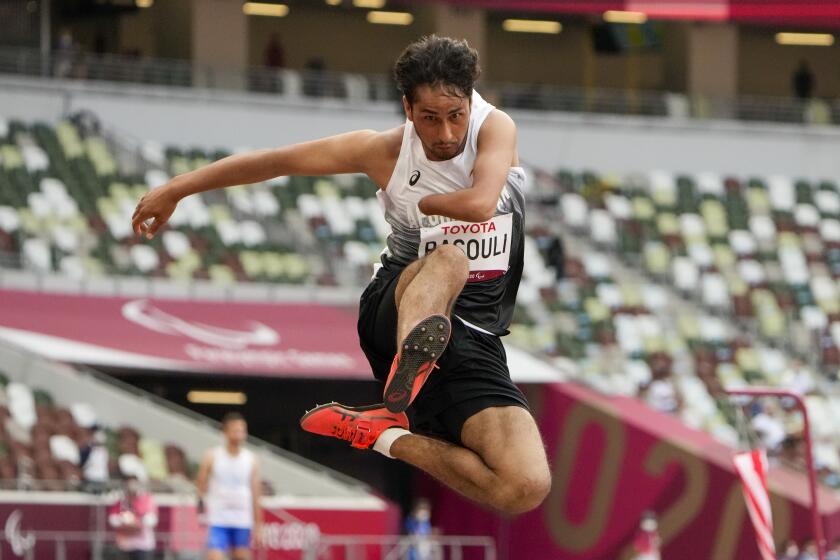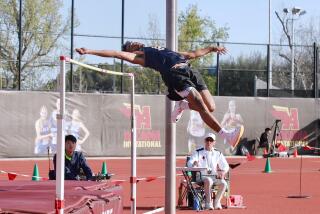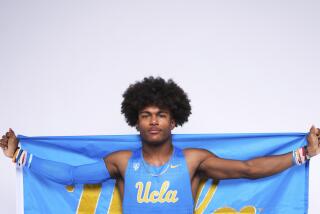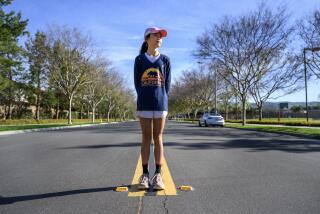Ezra Frech was Team USA’s second-youngest Paralympian in Tokyo. He’s just getting started
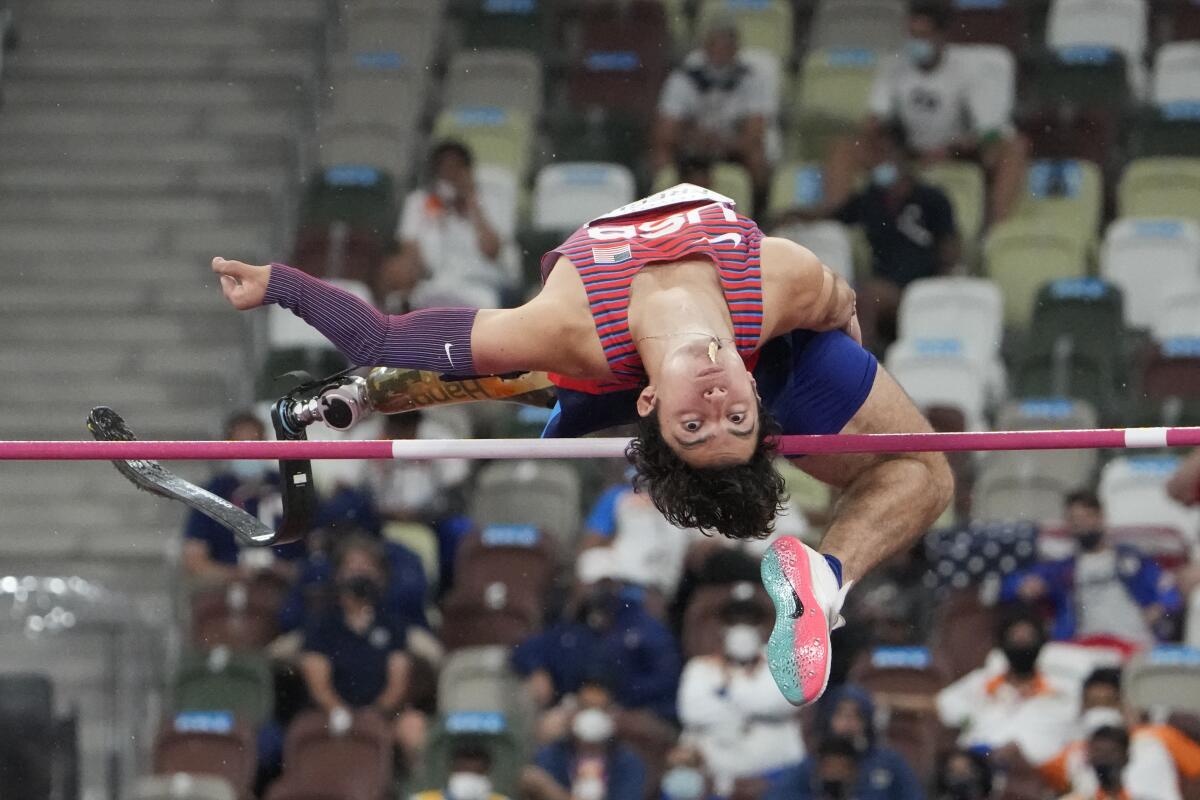
The rain was pouring but Ezra Frech didn’t take cover. He let the Tokyo downpour drench his brown curls and soak through his red Team USA jersey as he stood by the high jump mat and watched three competitors wave flags from their respective countries in jubilant celebration.
That’s where he wanted to be.
Frech, a 16-year-old L.A. native born with congenital limb differences, was the youngest member of the U.S. Paralympic track and field team at the Tokyo Games, where he finished eighth in the long jump and fifth in the high jump in the T63 classification. Matching a personal best in the high jump despite competing in pouring rain during a Paralympic debut could be considered a job well done for the Brentwood School junior, but the performance was still eating at him the next morning.
This was supposed to be his arrival on the world’s largest stage. Instead, it’s only the beginning.
“As far as I’m concerned, he has the brightest future of anyone on his team,” said high jump gold medalist Sam Grewe, a friend and mentor to Frech.
Frech’s potential star power goes beyond the track, where he was the only competitor in the T63 classification, which is reserved for athletes with a single through knee or above knee limb deficiency competing with a prosthesis, to match a personal best in the final. Well-spoken, good-looking and charismatic, Frech has all the ingredients of a star who hopes to help elevate adaptive sports into everyday discourse by the time the Games come to his hometown in 2028.
Overcoming the scars of decades of war by competing in the Tokyo Paralympics, Afghanistan’s athletes know their lives will never be the same.
When that time comes, he envisions advocating for people with physical disabilities in sports from the top of the podium.
“I’ll say this right now,” Frech said while lying in a hammock in the Paralympic village the morning after the high jump final, “I’m promising that L.A., in my three events, the long jump, high jump and 100 meter, I will win all gold medals.”
Frech was born without a knee and fibula in his left leg and fingers on his left hand. As a toddler, he underwent surgery to remove the nonfunctioning part of his leg and transplant toes from his left foot onto his left hand. The circumstances never dampened Frech’s opportunities for sports as his parents started taking him to watch adaptive sports competitions before he could remember them.
Frech played basketball and soccer, and ran track, but was always the only one with a physical disability. People stared and whispered everywhere he went. He felt like an outsider.
When he was young, Frech stood in front of a mirror in his room and looked at his prosthetic leg. He asked why he was born this way.
He soon realized the reason behind his body wasn’t as important as his reaction to it.
“I’m stuck in this body for the rest of my life. I can’t change it,” Frech said. “I might as well make the most out of my life.”
Encouraged by his parents, Frech started combating silent stares and finger pointing with conversation. When his parents noticed someone looking at him, they encouraged the bystander to ask a question instead of gawk. Frech, from as young as 4 years old, started sharing his story with classmates and neighbors to educate them on physical disabilities.
Now his loudest speeches come on the track, where he spoke in Tokyo by contorting his body over a 5-foot-11-inch bar and flying 19 feet 2 inches in the long jump as one of seven U.S. Paralympians under 18.
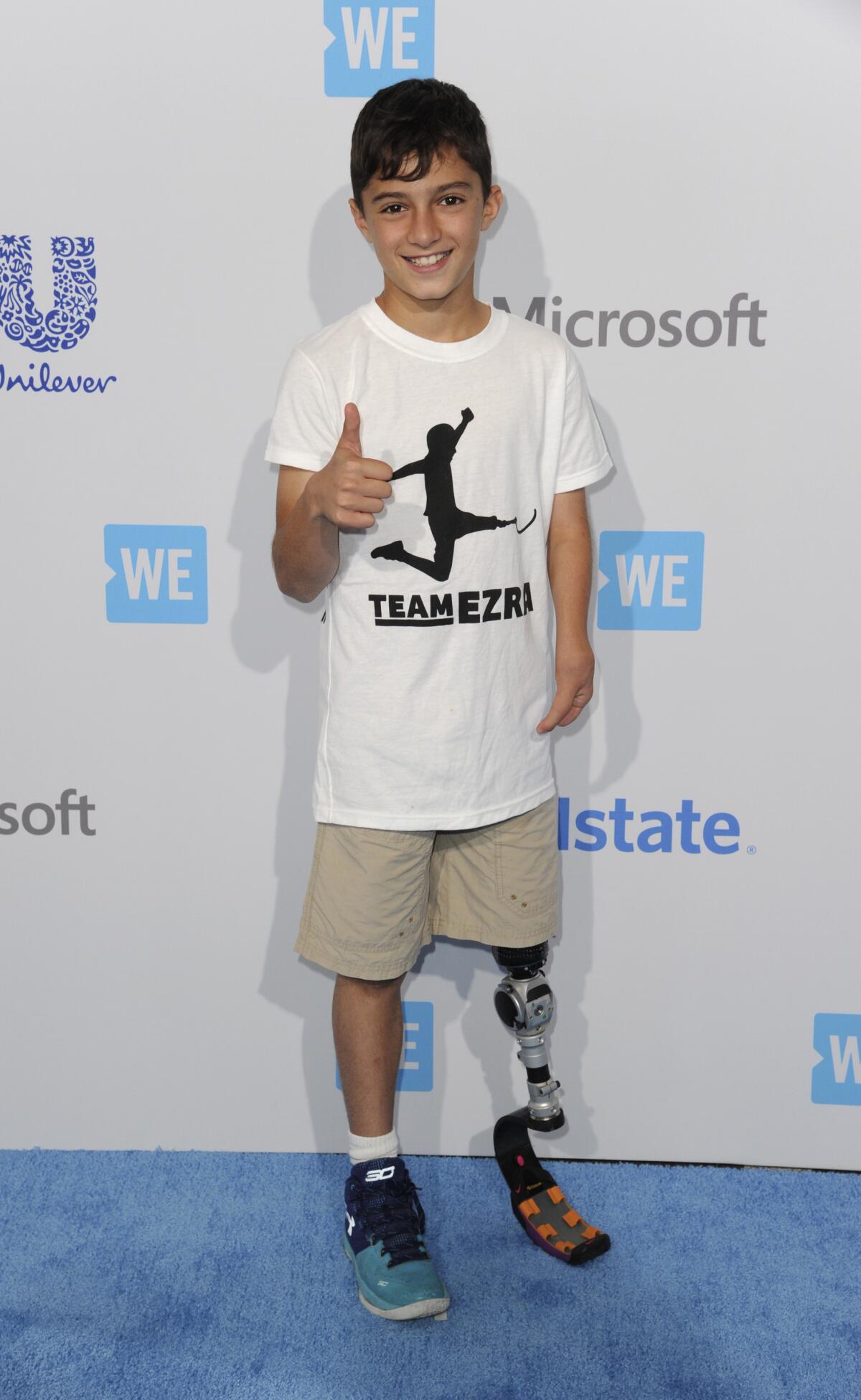
Using sports to advocate for people with disabilities became a realistic goal when Frech watched the 2016 Paralympics. The track and field events sparked something inside him.
“I could visualize this career in Paralympic sport and track and field and becoming one of the icons of the Paralympic movement,” Frech said. “One of the Michael Phelpses, the Usain Bolts, ultimately would be my dream.”
Frech is already showing the talent to become a household name. Grewe thinks it’s irresponsible to put a ceiling on what Frech can do. Frech has already surprised him once.
When the young prodigy first met Grewe, who lost his leg to cancer and started high jumping in 2015, Frech told the classification’s world record holder that they would jump side by side in Tokyo. Frech was just 11.
Grewe looked at the skinny pre-teen and assured him it was possible, although a small part of Grewe’s mind wondered whether he’d just given him false hope.
“Obviously I didn’t know Ezra very well at the time,” Grewe said.
From their first meeting, Grewe started sharing workouts that Frech replicated religiously. They became like brothers.
Finding a mentor such as Grewe showed Frech the beauty of the adaptive sports community. Although Frech attended annual sports events for children with physical disabilities, the irregularity and brief nature of the meets didn’t offer a strong sense of community. He often felt like he was on this journey alone.
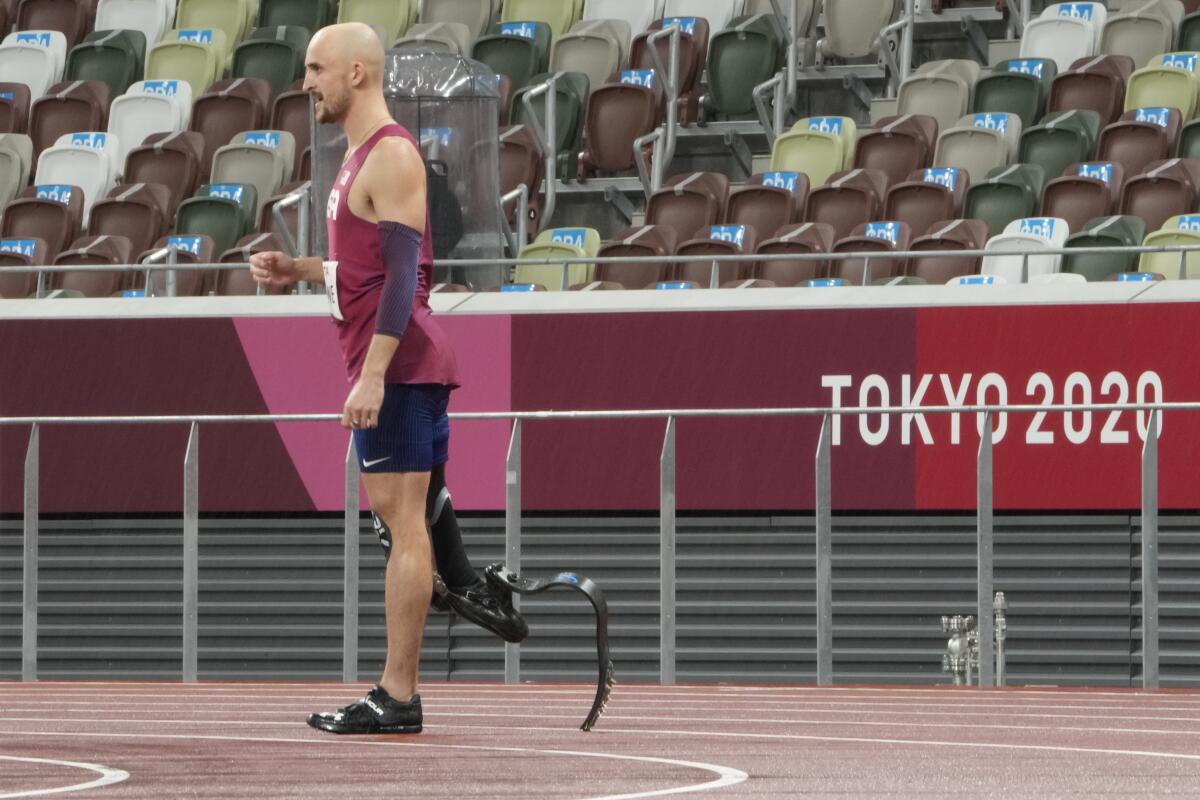
That lonely feeling was a motivating factor for Frech and his family to create Angel City Sports, an organization founded in 2013 to provide sports programming for kids, adults and veterans with physical disabilities or visual impairments.
“We feel like outsiders 24/7,” Frech said. “Everywhere we go in public, there’s people staring and pointing fingers and whispering. … [Angel City Sports] is really providing a family, providing a community, providing a space for people to feel like they fit in. And that’s much more powerful than any medal I’ll ever win.”
The first Angel City Games in 2015 featured about 100 athletes, Frech said. It’s grown to more than 1,000. Frech is humbled by the rise. He thinks it mirrors his own athletic career. To match his lofty ambitions on the track, Frech hopes to grow Angel City Sports into one of the largest adaptive sports organizations in the world.
Frech’s lengthy list of off-the-track obligations wows even Grewe, a 23-year-old who is in his first year of medical school at Michigan and was studying up to eight hours a day while competing in Tokyo.
Investing so much only to walk away empty-handed after falling about an inch short of the bronze medal made it all the more painful for Frech to watch others celebrate their medals.
It’s only a matter of time until Frech surpasses them. Grewe is sure of it.
“I just know that it’s his time now,” Grewe said. “There’s no stopping him.”
More to Read
Go beyond the scoreboard
Get the latest on L.A.'s teams in the daily Sports Report newsletter.
You may occasionally receive promotional content from the Los Angeles Times.

